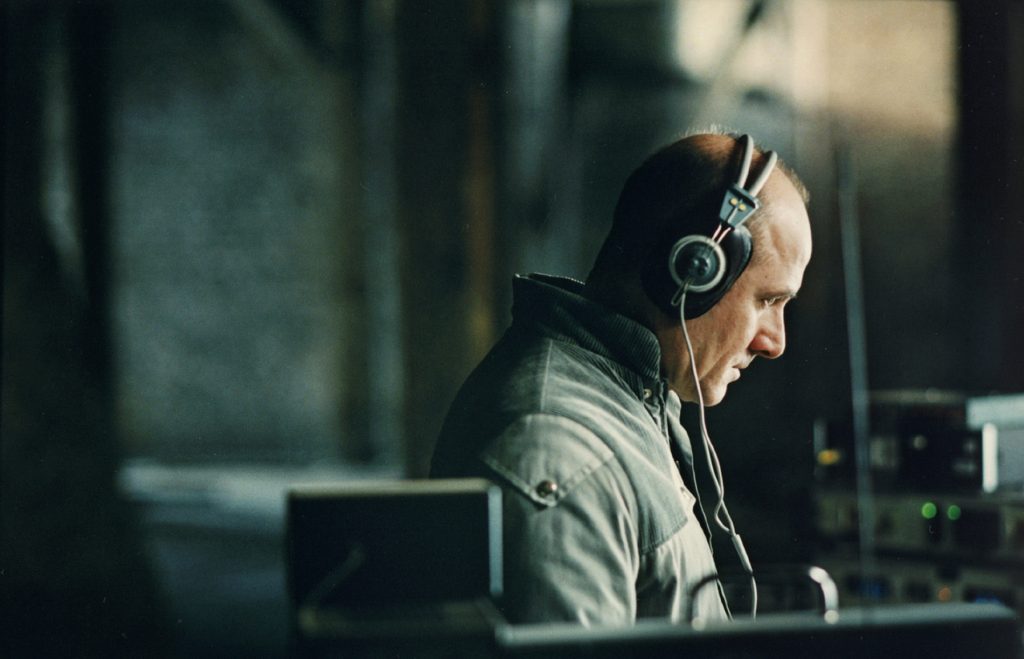By Karen - 25 August 2021

In recent years, several excellent German films, or writing people or narratives, all carry a re-examination and reflection on history. Whether it was the cruel World War II or the absurd Cold War period, in addition to criticism and denial, there was a more humane consideration.
The Lives of Others describes East Germany in the 1980s. In that era when everyone was in danger, the National Security Agency played an important and special role. The protagonist of the film, Wiesler, is an experienced eavesdropper who serves it. He is now leaving the front line to teach new intelligence personnel, but at the invitation of his former colleague who is already a leader, he comes out again to monitor a couple of writers and actors.
From the beginning of the film, from Wiesler's teaching and a large part of the interrogation, he showed his calmness and professionalism. The process of installing eavesdropping equipment to the writer is even more impressive. But a person like him has gradually changed in the process of eavesdropping. Real artists, their sincere and rich emotions, have a direct shock to the soul. When he was no one, he walked into their home and saw the things he heard, pens, salad forks, and felt cordial and wonderful. He secretly took the author's collection of poems and was moved by it. He loves that beautiful actress wife. When she was helpless and suffering, he encouraged and supported her as an ordinary audience. Corresponding to this is his own loneliness and doubts about his identity. He cannot answer the questions of the child who has lost his father, and the prostitute who works by the hour cannot comfort him.
Although he was affected, he still did his job with due diligence. Until the boss's words, let him realize that in this era, no matter what you do, no one is absolutely safe. Despite performing his official duties, any expression of emotion may bring him a killing. He considered his own safety and realized the absurdity and lack of this era. He hid the report that was supposed to be turned in, and began to act as a cover for the writers and them.
Finally, while avoiding the boss's suspicion, Wiesler secretly took the typewriter as an important physical evidence. The investigation of the writer ended in failure because there was no evidence. Because the task was not completed, Wiesler was sent to check the letter. He was also involved in the letter-opening work with the young intelligence agent who played jokes on the state leaders in the cafeteria.
Artists represented by writers are an important force for social progress. But in reality, their liberalism is regarded as an important threat to state power. They were monitored, wiretapped, and never had any freedom of creation or even personal freedom. Some were silent, some resisted, and artists blamed each other, but in fact everyone was helpless. The suicide of the respected old director who has been banned for six years has intensified the contradiction to the highest point. With the help of friends, the writer took the risk to publish the shocking "Survey Report on the Number of Suicides in East Germany", announcing the existence of another voice to the world.
As the whistleblower's wife, although she has the special status of a famous actor and writer's wife, she represents a large number of social existence that bears the stigma of whistleblower in that era. From betraying herself to betraying others, you can say that she is not brave and firm enough, but she should not blaspheme the original purity and tenacity of her soul. Death is the most hopeless farewell. But in that moment of collision and confusion, there was a thoughtful self-salvation.
Later, the Berlin Wall was overthrown. Later, the two Germanys were reunified.
In the theater, the writer couldn't help thinking of his wife. After fled to the theater, he met the former minister of culture, his former enemy. During the conversation, the writer was surprised to find that his home, which he thought was safe, was actually closely monitored. When he got home, he was looking for a bug, crazy, angry, and shuddering afterwards. The film is not entangled in accusations of the past, but follows the clues, allowing the writer to find the reason why he has not been discovered. He found "HGW XX/7" in the archives, but when he found someone else, the writer stopped.
Two years later, the author published a book called "Sonata of a Good Man", dedicated to "HGW XX/7".
Finally, it is a very meaningful scene that makes people feel a lot of emotion. Wiesler, who turned from opening letters to sending letters, found the author's new book when he passed the bookstore. He bought one, and the bookstore guy asked him if he wanted to wrap it up as a gift, and he said it didn't need to be for himself. Yes! This book is not only a gift from the author to him, but also a warm gift he left to himself in those cold years!


